Women's WorldTour reforms: A team perspective
Overall support for change, but concerns about affordability, exposure and communication linger
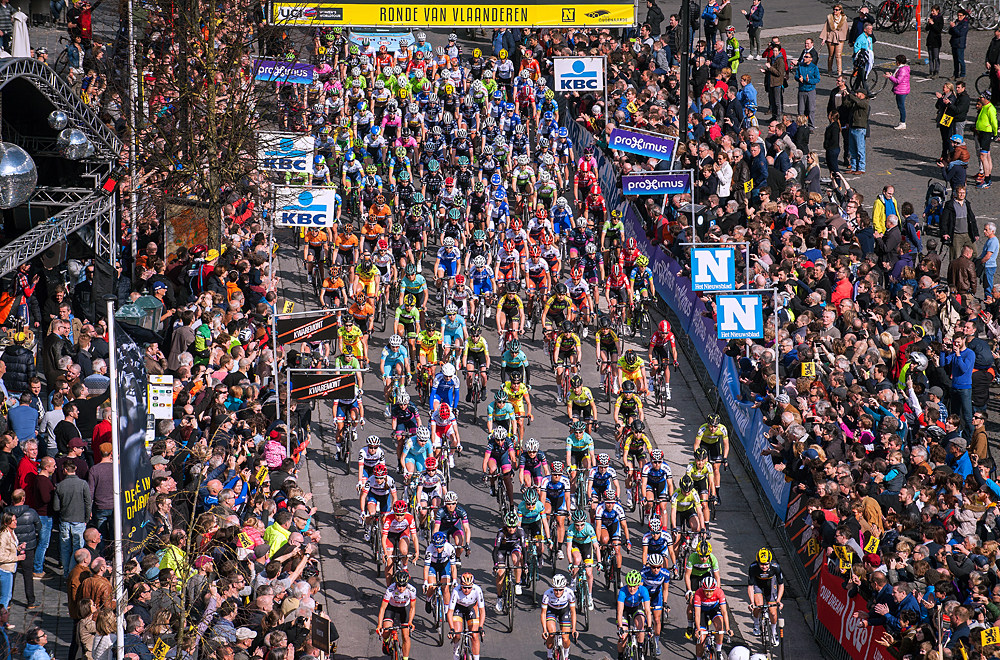
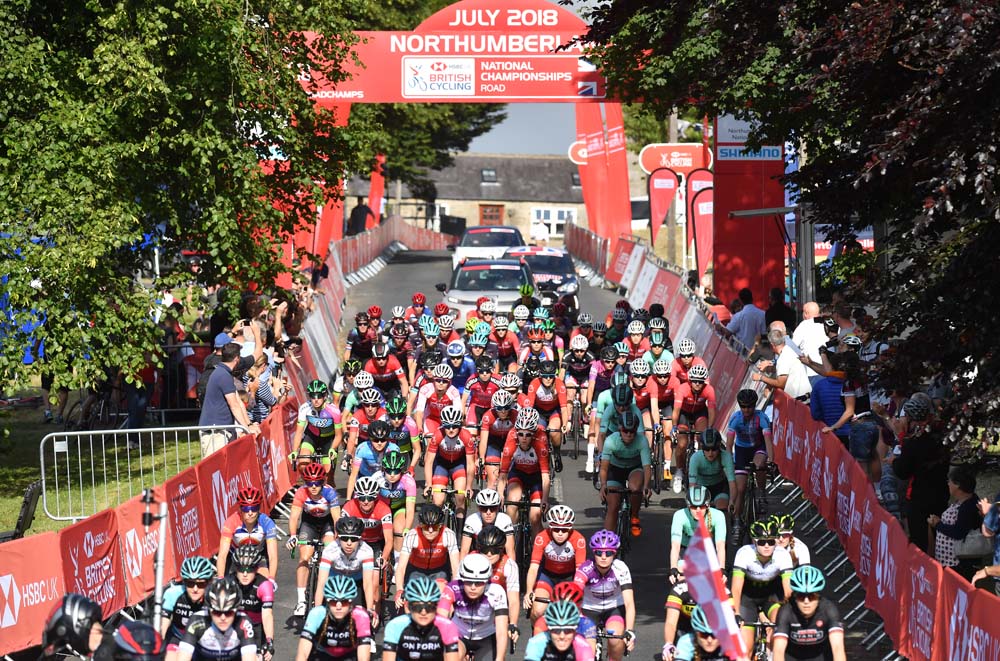
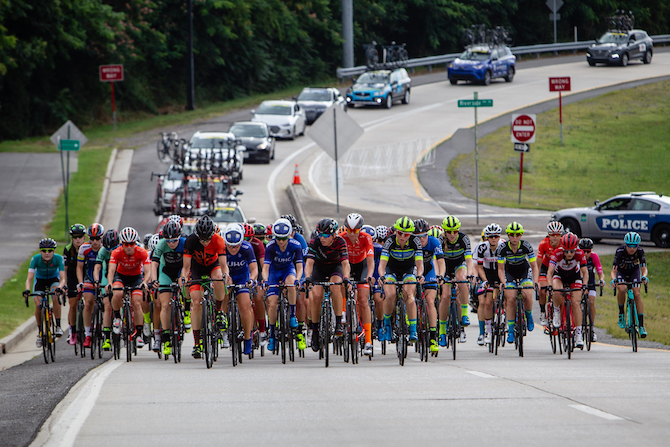
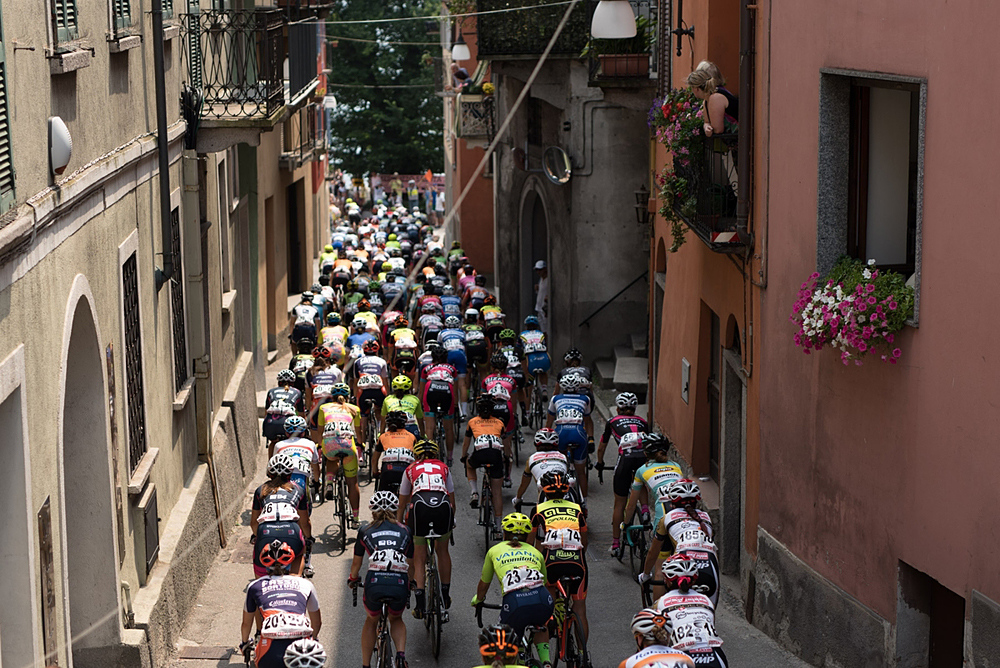
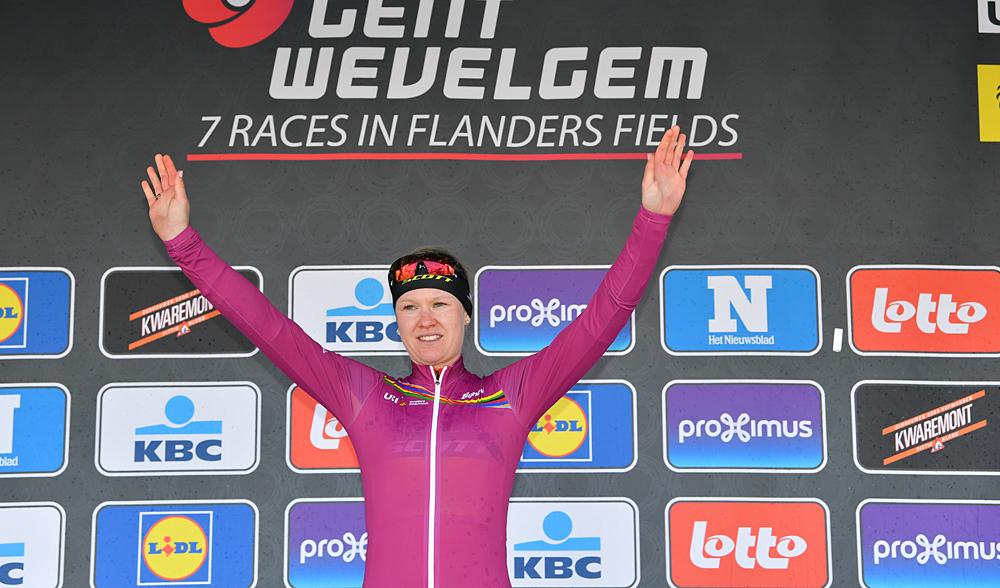
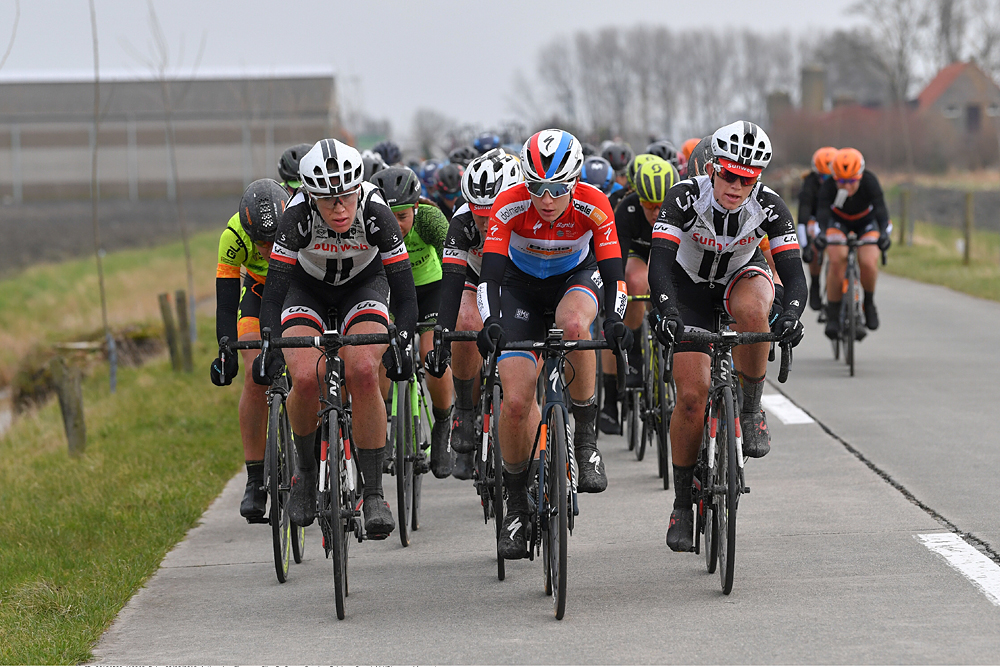
Women’s cycling has been under a slow reform for years, but there has never been a clear pathway presented along which to take the kinds of steps forward that it deserves as a professional sport - especially one which all parties agree on.
UCI President Lappartient commits to gender equality in Agenda 2022
UCI Women's WorldTeam minimum salary set for 2020
Five squads to make up top-tier UCI Women's WorldTeams in 2020
Exclusive: Women's minimum salary will equal men's Pro Continental level by 2023
Van Vleuten's wishlist: Live broadcasting, bigger races and better salary
Maternity leave added to Women's WorldTeam contracts in 2020
Updated UCI Code of Ethics targets anonymity concerns for abuse victims
UCI President David Lappartient has made a point to improve gender equality and working conditions for women in cycling during his time in office, and as such, the UCI began announcing details of the Women's WorldTour reforms in July, starting with a new declaration of recognition of ethical principles to raise awareness of harassment.
There will be stricter contract regulations, a tiered-team system - Women's WorldTeam and Continental Teams - five teams as part of the top tier in the first year, with a goal of reaching 15 teams by 2022, by adding five new teams per year. And a new events calendar; UCI ProSeries that includes four classes: UCI Women's WorldTour, UCI ProSeries, Class 1 and Class 2.
There will be minimum salaries starting at €15,000 in 2020 and increasing to just under €30,000 by 2023, for the WorldTeams only. The UCI recently published amendments to its rules and regulations that detailed these changes and included a sample standard self-employed contract that highlighted a new maternity leave clause and additional insurances such as health and pension plans, all of which are set to take effect in 2020.
But from the teams' perspective, there is the elephant in the room; how can women's teams, many of which struggle to find adequate sponsorship, afford these reforms?
Cyclingnews has covered the upcoming reforms in depth, in speaking with the UCI and the riders, but the teams have been reluctant to comment because the details of the reforms are still unclear.
The UCI hosted a meeting with the teams in Montreux, Switzerland on Tuesday where they explained in more detail the new organisation of women's professional road cycling to be introduced in 2020, notably, the new requirements for teams and organisers. During the month ahead of the meeting, Cyclingnews reached out to a handful of the UCI Women's Teams to get some of their perspectives on the reforms.
Get The Leadout Newsletter
The latest race content, interviews, features, reviews and expert buying guides, direct to your inbox!
Boels Dolman's manager Danny Stam has already voiced his concerns in the media following an interview with the Dutch news outlet Nos.nl, saying that the reforms were going "too fast".
He elaborated on that statement in an interview with Cyclingnews, careful to note his support for the development of women's cycling, saying, "We very much support further professionalisation of the sport. However, it's very important that a new category will be added under the Women's WorldTour so that the progress is incremental."
Many of the teams that Cyclingnews spoke with support the need to improve the professionalism of women’s cycling and whole-heartedly agree with the heightened ethical standards. Their main concerns, however, included affordability, limited TV time and exposure, limited collaboration with the UCI, and questions around the structure of the teams and races.
Exposure is a must
At the top of almost every team's list of must-haves is the need for more live coverage of races on television and online streaming options. Better exposure and marketing of women’s cycling will lead to more money coming into the sport, and in turn help the teams pay for things like minimum salaries, additional insurances and higher registration fees.
Riders have expressed similar views. In an interview with Cyclingnews, Annemiek van Vleuten (Mitchelton-Scott) said that live broadcasting of races was the number one item on her wish list to improve women’s cycling.
Linda Jackson, who owns and manages the long-running American team Tibco-Silicon Valley Bank, said that the UCI needs first to help facilitate more races, and better live coverage and marketing of the sport, so that teams can go to sponsors with clear statistics that convey their value.
"My perspective, implementing these financial requirements without first addressing and fixing the disparity in the ROI [return on investment] women's teams can offer potential sponsors, is fundamentally flawed," Jackson told Cyclingnews. "We can't secure the same sponsorship [as men's teams] because we can't offer the same return to potential sponsors.
"I just got back from the Guangxi WorldTour race. It was very well organized, the riders were well taken care of, but there was no media coverage of the women's race. You couldn't find anything on it anywhere. The women's race was one day, the men had a six-day televised stage race. The UCI should fix these disparities before they start insisting that we have the same minimum salaries [as the Professional Continental men's teams – ed.]."
Jackson pointed out that she pays all her riders a salary.
This year, however, there were more women's races that offered live coverage than in any other year, and that is expected to continue to rise. Lappartient told Cyclingnews in June that the improvement of coverage and exposure are major development areas for the UCI Women's WorldTour.
CCC-Liv manager and owner Eric van den Boom said he was encouraged by an increased number of people watching women's cycling on TV, especially noting the 2018 UCI Road World Championships where Anna van der Breggen (Netherlands) won the world title.
"Our sport is growing in popularity," Van den Boom told Cyclingnews. "Just look at the ratings of important races and championships. You see an increased interest in the sport. Not only in countries where it has been traditionally popular, but also in others. During the World Championship in Innsbruck, for instance, the number of viewers in Europe for the women's races (time trial and road race, -ed.) was 38% lower than those for the men's. That's a nice number, knowing that the men completed their championships in 'prime time' and the women did not. People stay at home and switch on the TV when they know cycling is being broadcasted. This development is positive and helps us to grow even further."
A representative of the Sunweb women's team, that is managed alongside the men's WorldTour squad, added that it's not just about TV-time, but that there is a need for better marketing strategy in general, that would support the higher financial obligations.
Sunweb's representative said that it was important for the UCI to try to encourage teams, with their riders, and race organizers to work together economically, to grow and to divide the increased value, suggesting the reforms to the current structure are needed.
"A new economic model is indeed necessary to shift the teams'/riders' and race organisers' attention away from their mutual contradictions and conflicts and move it towards a full and joint focus on the fans, to ultimately work together to jointly market cycling as an even better product.
"Only with this growth, the position and minimum salary of riders can be financed in a healthy way, as well as race organisers having the ability to invest much more in the safety of the course, have higher investments in anti-doping, in even better TV and internet products, and so on."
Affordability - Downsizing and fear of folding
The minimum salary and insurances will be the most significant financial requirements that the teams will need to adhere to if they want to apply to be among the Women’s WorldTeams. The other costs will include higher registration fees and the costs of bringing in a team doctor and extra staff.
The heightened financial requirements will only apply to the five teams that will make up the top tier in 2020, and some teams claim to have no problem adjusting to the higher costs while others say they won't be able to afford it.
Trek-Segafredo has launched a new women's team alongside its men's WorldTour squad, which has signed a world-class roster for its inaugural season including former world champion Lizzie Deignan. The team will benefit from the men's program and the existing infrastructure, management and marketing teams, and sponsorship.
General manager, Luca Guercilena told Cyclingnews that their women’s team could comply with the new financial requirements sooner than 2020.
"The team was set up considering the upcoming reform so it will not affect our team," Guercilena said. "We believe that having a minimum salary is the first step to turn women cycling in a true professional sport as well as the insurances for maternity. We can sustain the costs for the minimum salary starting in 2019."
Stam said that his Boels-Dolmans team will not have a problem paying a minimum salary, too, and that his riders already earn a wage. His team is not attached to a men's WorldTour outfit and so absorbing the additional expenses is what could be a problem for his program.
"The minimum salary requirement isn't the problem, but there are a lot of additional costs that add up to quite a big amount of money that a team needs to have in order to set up a professional women's team," Stam told Cyclingnews, referring to the additional staff, a team doctor and the insurances.
Norwegian team Hitec Products-Birk Sport is a smaller program run Karl Lima, who told Cyclingnews that he pays all his riders, and although he did not disclose salary amounts, said he wished he could pay them more.
Asked if he could sustain the higher financial obligations and become a WorldTeam in 2020, he said, "No, it's too high." He agreed with the introduction of a minimum salary but said that "at the moment we have not a possibility [of applying to be in the top tier]."
Asked if he believed that it was a fair alternative to offer a second tier [Continental Teams] that has no minimum salary requirements, particularly for those teams that may not be in a position to absorb the additional financial requirements of a minimum salary, Lima said, "Yes."
Jackson said that if she were to apply to be among the top-tier teams, she would have to reduce her roster size to afford the new costs.
"It's not feasible at our current sponsorship levels," Jackson said. "What this will do to our team is reduce the number of women that we can hire.
"I believe that instead of growing the sport, this minimum salary rule could shrink the number of riders on teams. If I can show more media ROI to potential sponsors, I might be able to grow our budget."
Jackson weighed the options of being a WorldTeam or a Continental Team but said that her team supports women who compete at the highest level and that many of her riders also have goals of racing at the Olympic Games. She said that being a second-tier team would mean even less media exposure, less of a ROI to provide sponsors and potentially less funding. She said that's not the direction she wants to take her team.
"It's tough enough to get sponsorship with the level of media exposure we have now," said Jackson, who currently supports 13 athletes. "The second tier is going to have much less media exposure. Also, I am not interested in competing in the second tier. I want to have our athletes able to participate against the top competition in the world so that they are better able to achieve their goals of making it to the Olympics.
"At this point, there is no way we could comply with the stated minimum salary requirement, so my decision in 2022 [when the minimum salary will reach its goal of €30,000], if this were to be enforced, will be to either fold the team or hire a lot less riders."
According to the regulations, the size of Women’s WorldTeams will vary, but the UCI has set a minimum and a maximum number of riders at no fewer than nine and no more than 16 in 2020 and 2021. That will increase to a minimum of 10 and maximum of 20 riders per team in 2022 and onward.
Van den Boom has taken a more pragmatic approach to the reforms and whether they are affordable for teams, noting that he agrees changes are need and is encouraged by the reforms, but that he would rather see a series of targets in place with which to realistically meet the financial goals.
"You do not need to be a skilled mathematician to calculate that it will be challenging to spend more money on, for example, salaries and other things which are needed in order for the sport to further mature, with budgets which do not increase," he said. "This does not mean, however, that we, as a team, find the current discussion and mentioned changes to be negative. As a matter of fact, we also want nothing more than a professional, healthy, highly organised cycling sport, a sport in which more riders can make a decent living and in which all social aspects in the contracts are being met by all teams.
"We like to approach the discussion somewhat differently. We would rather jointly put a mark on the horizon. With all parties involved - teams, race organisations, cycling union, businesses, you name it - we can decide which direction to go to reach that goal. And above all: what it takes to be able to move on the right track. In cycling terms: you can develop the nicest racing bike, but without the pedals, you do not proceed at all. This is also the case with the mentioned changes: the overall aim and the idea behind it are excellent, but let us also offer the tools to be able to realise these ambitions."
Limited communication
The women's cycling reforms have been underway for several years with the Women's WorldTour calendar launched under Brian Cookson's presidency in 2016. There is also a UCI Women’s WorldTour Committee, along with a UCI Women's Working Group, that would have played a role in the reform discussions.
Teams have a representative seated on the Women's WorldTour Committee with Shayne Bannan, who replaced Rochelle Gilmore. The Committee has largely driven the new organisation of the Women's WorldTour. Any changes would have been presented to the UCI Road Commission, including Alfonso Galilea from Movistar, and then submitted to the Management Committee.
Several of the teams that Cyclingnews spoke with, however, said that there was very little communication between the teams and the UCI regarding the Women's WorldTour reforms, particularly in the lead-up to the announcements in September.
Teams were surprised to learn that the goal of the minimum salary was to equal that of the Professional Continental teams by 2023, and many of them said that hadn’t had discussions with the UCI regarding the exact figures.
Some also said that they knew very little about the details of the reforms including the structure of the teams and additional insurances until the UCI published the amendments to its rules and regulations in early November.
"No, it hasn't been a collaborative process," Stam told Cyclingnews. "We have heard lots of rumours, but until this day, we have received no official communication by the UCI concerning these topics."
Lima said that he couldn't recall being given an opportunity to provide input on the structures of the reforms or the minimum salary. Jackson said she was a guest on the UCI Women's Working Group, where she made her opinions on the reforms heard, but noted that, overall, she didn't feel as though it was a collaborative process.
"We had to tell the UCI what our budget was a while back, but other than that, there was no communication," Jackson said.
Trek-Segafredo, on the other hand, said that they were not part of the reforms discussion over the last few years because their women's team is too new.
The UCI planned on communicating the details of the 2020 Women's WorldTour reforms with the teams in a special meeting in Montreux on Tuesday.
The meeting was intended to break down the reforms in detail. It would explain the hierarchy for the UCI Women's Teams, regulations and registration for teams, along with the team contributions to the anti-doping. From an events standpoint, the meeting would address the new UCI ProSeries, criteria for each class, fees and registration and prize money.
Canyon-SRAM manager Ronny Lauke told Cyclingnews that he believes reform is necessary to give the sport a better structure, to create a robust picture moving forward.
But like some of the other teams, he said that it is unclear what the benefits are in applying to be a top-tier Women's WorldTeam, in light of the additional expenses. He hopes that some of the specifics of the reforms will be cleared up on Tuesday in Montreux.
"Unfortunately, so far I've only discovered additional obligations for the teams, with the information available," Lauke told Cyclingnews. "I am very interested to hear the benefits for teams highlighted and explained first hand. As I understand now, we will need to make an additional financial effort with our partners to be able to register WWT.
"I would prefer to wait with further comments until I've heard first hand from UCI what their intentions for those plans have been and where they see the benefits for the riders, but also for the sport overall and the detailed plan to create growth for women's cycling with the regulations and enforcement coming in place."
So while the teams convene in Montreux looking for some clarity on the upcoming Women's WorldTour reforms, it's to be expected that they won't all agree on every point. What many of the teams have already decided on, however, is that they are in support of an overall reform that will better improve the professionalism of women's cycling.
Van den Boom ensures that even if the stakeholders don't agree on every minute point of the reforms, women's cycling is still headed in the right direction, and he used his own team as an example.
"We would like to emphasise that the glass is certainly not half empty, but rather half full," he said. "After all, this kind of debate is part of a sport in development. And we have done a good job within the CCC-Liv team. The salary budget has grown in a healthy way in recent years and social affairs have been well regulated since many years. For example, people who are side-lined for an extended period of time are being paid. Also in terms of support - next season we work with a performance manager for the first time - we take professional steps. However, we would like to fill the glass even further, which is possible with reforming the sport. As long as this is done in a reasoned manner, we would like to give this process a chance."
Cyclingnews reached out to Mitchelton-Scott but wasn't able to connect with the team ahead of publishing this article. Movistar have declined to comment until further details on the reforms are released.

Kirsten Frattini is the Deputy Editor of Cyclingnews, overseeing the global racing content plan.
Kirsten has a background in Kinesiology and Health Science. She has been involved in cycling from the community and grassroots level to professional cycling's biggest races, reporting on the WorldTour, Spring Classics, Tours de France, World Championships and Olympic Games.
She began her sports journalism career with Cyclingnews as a North American Correspondent in 2006. In 2018, Kirsten became Women's Editor – overseeing the content strategy, race coverage and growth of women's professional cycling – before becoming Deputy Editor in 2023.